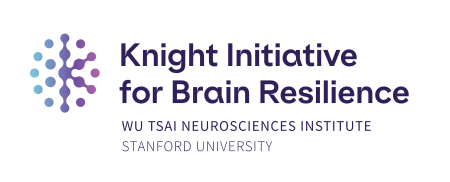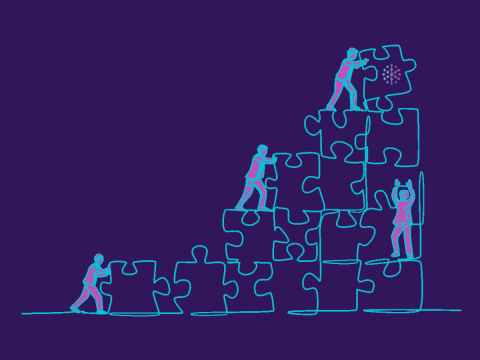As we age, our cognitive abilities decline, and many of us may experience memory loss, dementia, or neurodegeneration. However, research shows that some individuals are resilient to the ravages of time and remain cognitively intact even after reaching 100 years of age.
What if we could evade the aging process, resist genetic risk factors of cognitive decline, or even reverse aspects of brain aging altogether?
The Knight Initiative for Brain Resilience seeks creative and bold proposals from Stanford research and clinical faculty with PI eligibility that have the potential to generate paradigm-shifting insights into healthy brain aging and resilience against cognitive decline and neurodegenerative disorders.
Application and eligibility information
"About 1 in 10,000 individuals reaches age 100 cognitively unscathed — seemingly resilient to the effects of time. The Phil and Penny Knight Initiative for Brain Resilience seeks to emulate this sidestepping of the aging process and raise the hope of reversing brain aging altogether. "
— Tony Wyss-Coray, Director, Knight Initiative for Brain Resilience
Catalyst Grants Application
Application deadline: April 22, 2024
Please review the application and eligibility information before applying. In brief:
- Stanford research and clinical faculty with PI eligibility (UTL, MCL, or NTL-research appointments) may apply
- Previous Innovation or Catalyst award PIs are only eligible to submit as a Co-PI on this round
- Applicants may request up to $500,000 in direct costs over a 2-year duration
Funded Catalyst grant projects
Identifying mechanisms of dopaminergic neuron resilience and their roles in Parkinson’s disease
Parkinson’s disease (PD) is the second most common neurodegenerative disease, characterized by progressive motor deficits such as tremor, muscle stiffness, and slowness of movement, and affects 6 million worldwide. Despite ongoing efforts to discover the mechanisms underlying this disease, PD remains an incurable disorder.
The role of microglia in brain resilience to pathological protein aggregates
Normal aging and neurodegenerative disease are typically characterized by accumulation of waste products inside the brain and in particular by aggregation of various types of proteins like Amyloid-beta outside of cells or the proteins Tau, alpha-synuclein, and TDP-43 inside cells.
Harnessing ketone metabolites for brain health and brain resilience
The ketogenic diet, fasting, and ketone supplements switch the body's fuel source from carbs to fats, a state known as ketosis. This switch can be good for your brain, helping to keep it healthy and resilient to damage. In ketosis, your liver makes a special fat-derived fuel called beta-hydroxybutyrate, or BHB for short.
Identifying the intrinsic biological factors of APOE risk and resilience across relevant iPSC-derived brain cell types
Brain resilience, the ability to withstand adverse outcomes despite significant risk factors, is crucial in late-onset Alzheimer’s disease (AD), where the Apolipoprotein E4 (APOE4) gene is a major risk factor. Carrying APOE4 increases AD risk up to 15-fold compared to the ApoE3 allele.

